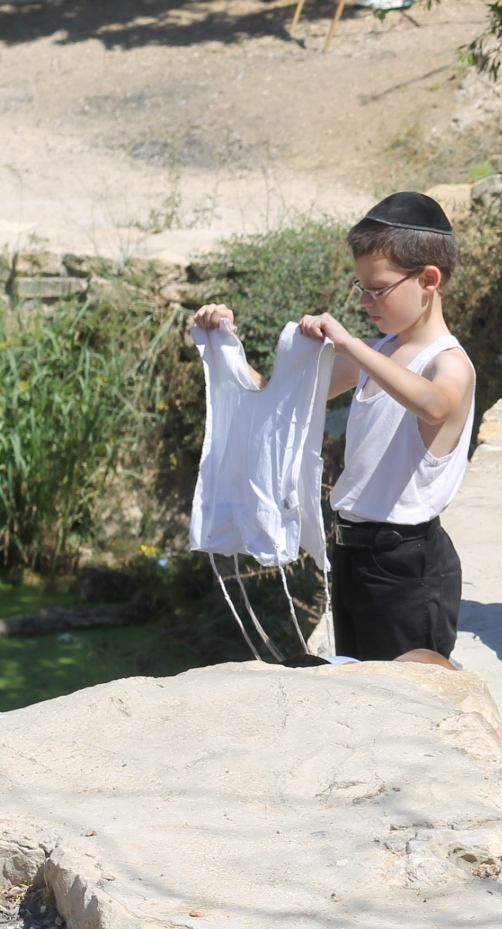
Laura van Rij (LR): What is your connection to Lifta?
Danielle Schwartz (DS): When I started studying in Jerusalem I passed Lifta lots of times on the bus. Whenever you enter the city there is a traffic jam, so I had time to give it a closer look. I didn´t know the history of the place back then but it just looked like a postcard, like a fairy tale. There is something magical about it, like it is not real, like it belongs to another world, another world than the ugly entrance of Jerusalem. The entrance to Jerusalem is so ugly and then you see this place, forgotten by development. I wondered why they didn´t built there, so I asked around for the story of this place. I guess I knew intuitively that it was a Palestinian village but I didn´t understand why it was not destroyed like the other villages. Maybe it is too romantic to destroy.
LR: Why did you decide to make a film about the village?
DS: At first I had a different idea. I was going through a bad phase in my life so my work was therefore negative. The first story I made was about a girl that wants to kill herself in Lifta. She cuts herself by the cactuses and wants to drown herself in the pool but someone takes her out of the water and puts the liquid of the cactus, the aloe vera, on the wounds. You hear a song in Arabic, whispering like a lullaby, and you see an Arab woman putting the girl to sleep. Because the cinema school had a very realist orientation it was hard to tell a symbolic story. So in the final version the Arab woman is not in the mind of the girl anymore but a real character. She is from Lifta, and she is coming to visit. Only this time she kills herself. She is coming to Lifta to die.
LR: Why did you choose Lifta as location?
DS: What attracted me most in Lifta visually is that while it is silent there is something happening all the time. There are no people there but there is plants, bees, ants, a lot of action, but not the regular action. I imagined long, static shots of the wind in the bushes. These houses and the trees that come out of the stone, you can see that the stone is alive. Something about the village is alive. It´s kind of scary because you realise this is what happens to every house if you don´t take care of it. The trees growing out of the walls, I was shocked by it. It is destructive and alive at the same time; this is what makes it magical. I had to invent a narrative for my film, but actually I didn´t want to, Lifta is a plot of its own.
LR: Is there a site that you like specifically?
DS: The house where they used to press the olives, the screw for the press is still there, but it doesn´t fit, it looks very modern. I don´t know how these people lived, I´ve recently seen some movies about traditional societies that are living in places that don´t look modern but that have instruments that are modern, so maybe Lifta is one of those.
LR: How did people react when you were filming there?
DS: People were looking at us because we were walking around with a woman dressed up as a Palestinian, like ´ahh, we know what you are doing.´ She was not a Palestinian by the way.When I went on a tour with YakoubOdeh there was someone on the tour that was telling about Lifta in the sixties, there was a lot of squatting here back then. He told that the holes in the roofs were actually against the squatters and not against the Palestinians. Or it was against both, they didn’t want Palestinians to live there and they didn’t want Jews to live there. They didn’t want anyone to live there.
LR: What do you think will happen to Lifta in the future?
DS: I think that it will turn into a disgusting real estate project, like the luxurious Bedouin style hotels, it looks like Disneyland. They also did it in Jaffa, try to make it look exotic, take the magic of the place but turn it into something commercial for rich people.
LR: If you could choose, what would you like to happen?
DS: What I would hope… I never thought about it but maybe it could be great if it was completely renovated so it would look like before 1948. It could be a place for historical learning, a place to see how the Palestinian villages looked like before 1948. There is something very egoistic about this idea though, considering that the Palestinians might want to come back.

